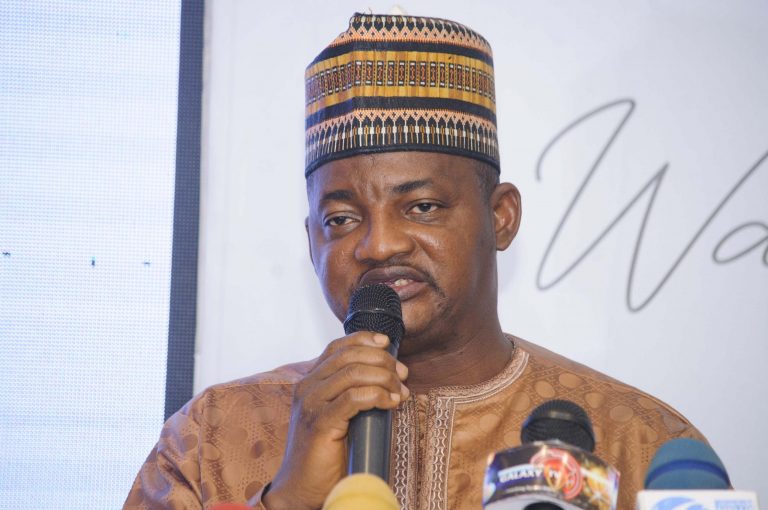By Daniel Edu
Dr. Olalekan Fadolapo, the Director-General of the Advertising Regulatory Council of Nigeria (ARCON), recently clarified the decision to remove ‘All Eyes on the Judiciary’ billboards across the country. The move sparked discussions and speculation, leading to questions about the motivations behind the action. In an interview, Fadolapo explained the rationale behind the decision and addressed concerns about censorship and possible political influence.
The ‘All Eyes on the Judiciary’ billboards were taken down due to violations of advertising guidelines. The Nigerian advertising industry is regulated, and certain rules must be followed when creating advertisements. In this case, the billboards violated guidelines by disparaging the judiciary and promoting a cause (related to ongoing legal proceedings), which could potentially lead to public unrest and a breach of peace.
Fadolapo emphasized that ARCON is a non-partisan government organization and that political alignments played no role in the decision. He highlighted that the heated political climate could be further agitated by such advertisements, potentially leading to a national crisis. He pointed out that the messages in the ads were not only against the principle of fair hearing but could also ignite further political and religious divisions.
Regarding the decision-making process, Fadolapo clarified that the Advertising Standard Panel (ASP) is an independent legal panel under ARCON’s jurisdiction. The ASP is responsible for approving advertisements based on established regulations. However, in this case, two materials were forwarded to the ASP for approval, and one was mistakenly approved due to a lack of thorough review. Fadolapo stressed that ARCON has since taken corrective measures and initiated investigations into the incident.
He emphasized that the dissolution of the ASP Secretariat and the suspension of its director and deputy director were not meant to make them scapegoats. These actions were taken to address an error that could have had severe consequences for national security. The panel’s oversight responsibility and independence were also highlighted, as ARCON does not control ASP’s day-to-day activities.
Fadolapo debunked claims that President Bola Tinubu was involved in the decision or influenced the punitive actions taken. He clarified that the advertisements were related to the judiciary and not the presidency, and the decision was an administrative procedure carried out to maintain public peace and harmony.
In conclusion, Fadolapo emphasized that freedom of speech is not absolute and must be balanced against other individuals’ and institutions’ rights. He reiterated that the billboards’ messages posed a risk to the ongoing judicial proceedings and public stability. The removal of the billboards was aimed at preventing further unrest and potential escalation of conflicts, allowing the judiciary to operate without undue pressure from public opinion.





